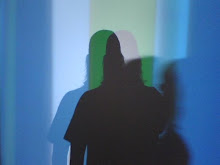Two years and a few days ago I saw a film called Revolutionary Road at the E Street Cinema in Washington, D.C. I had been looking forward to seeing the movie for quite some time but had put it off because: a)I was living in Savannah, GA at the time and Savannah--for no good reason at all--is devoid of the sort of movie theatres which release interesting films in a timely manner, and b)I was almost positive that I'd be able to see the movie free-of-charge at the E Street. Much to my delight, the latter came to pass. But much to my dismay, the film fell far short of my (probably too high) expectations. Perhaps Sam Mendes wasn't up to the task of making this movie, perhaps two fine actors--DiCaprio & Winslet--weren't quite fine enough to fully bring their characters to life, or perhaps the story (adapted from what I am told is a great novel by Richard Yates) simply wasn't meant for the cinema.
What does Revolutionary Road have to do with Blue Valentine, you ask? Well, from where I was sitting when I watched it last week, Blue Valentine looked a whole lot like a Revolutionary Road for the aging hipster set. A man and a woman who seem to genuinely love one another get married too soon, and for the wrong reason(s). They do their best to keep their hopes and dreams alive and in sight, but nonetheless wind up settling down in the suburbs and working nondescript jobs to make ends meet. Eventually, inevitably, their 'let's hold this together, we've got our child to think of' lifestyle becomes too much to bear and the first thing to be crushed under its formidable weight is the love this man and this woman once felt for one another. ... All the same pieces of the same puzzle are in play, albeit in a slightly different time and slightly different place. (And, though I'm sure this goes without saying, these circumstances remain heartbreaking.)
What sets Blue Valentine apart from Revolutionary Road is that Blue Valentine explores this emotionally devastating territory with brutal honesty whereas Revolutionary Road felt praticed and scripted and... well, just off.
Writer/director Derek Cianfrance wisely juggles time and space in telling Dean and Cindy's backstory; by intercutting flashbacks of happy, hopeful beginnings with their hopeless present-day predicament, he grants the viewer a respite from the sort of relentless emotional battering which defines Revolutionary Road.
Cianfrance hasn't made a perfect film, of course. There are instances in which the tone of a given scene doesn't quite match that of the scenes surrounding it, and in these instances the cinematic illusion is briefly but definitely broken. It's always disappointing to become deeply invested in a film's characters only to be jarred back to reality by the abrupt realization that, "Oh, yeah. We're sitting in a darkened room watching moving pictures. These people aren't real."
But despite its occasional flaws, Blue Valentine packs a serious and resounding emotional punch. The film is defined by its actors' performances, and Ryan Gosling and Michelle Williams are painfully believeable as Dean and Cindy. In theory, Blue Valentine is Derek Cianfrance's film, but I simply cannot imagine it being the same with anyone other than Gosling and Williams in these roles.
Blue Valentine is the movie I had hoped Revolutionary Road would be. In nearly every area that Revolutionary Road fell flat, Blue Valentine stands strong. While I am quite glad to put a two-year old disappointment to rest, I am also a bit worried about myself... Why on earth would I want so badly for a film to be this heartbreakingly painful?
Subscribe to:
Post Comments (Atom)

No comments:
Post a Comment